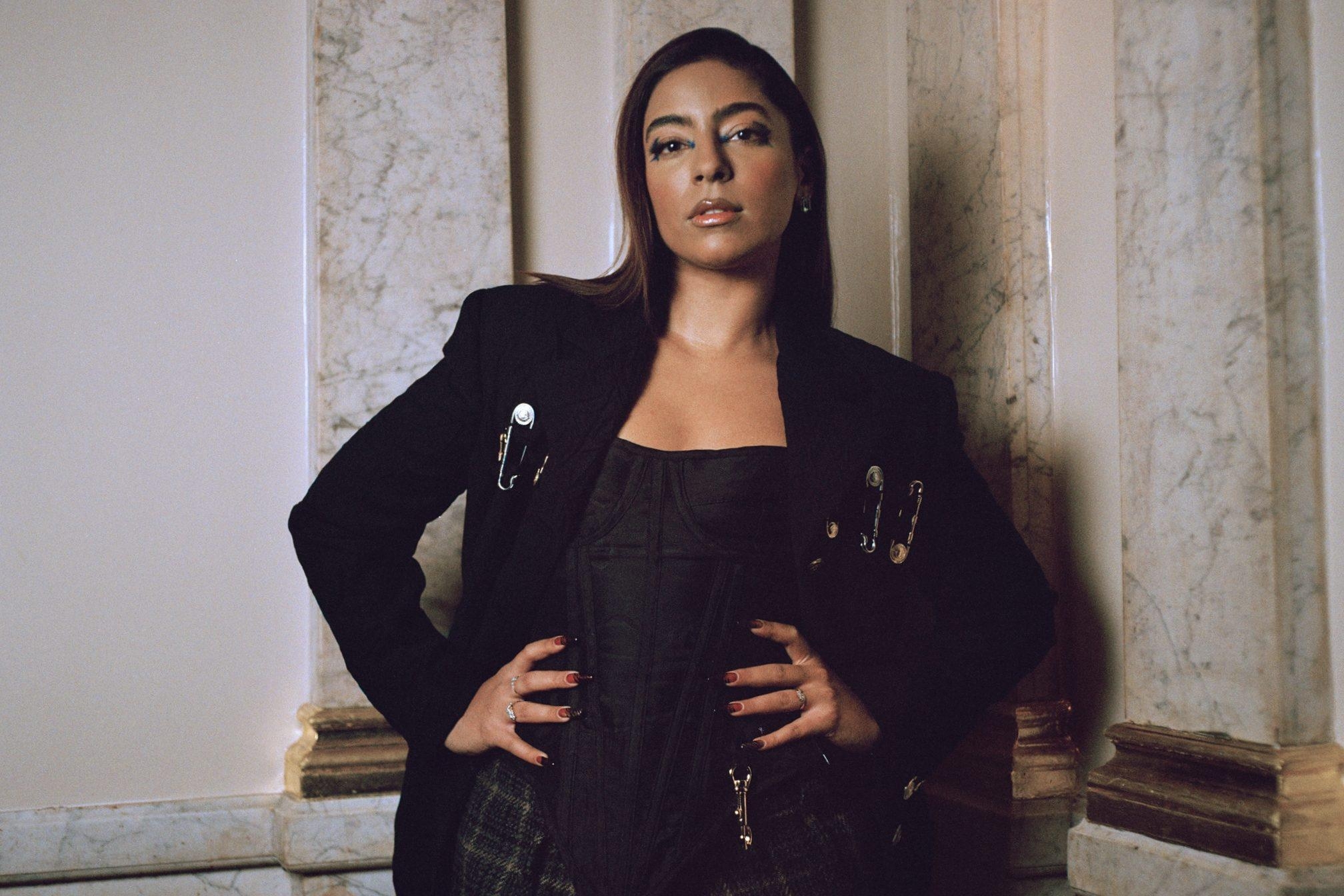 Interviews
Interviews
New blueprint: how Jyoty grew from rave lifer to DJ phenomenon
From raving underage in Amsterdam and working London club doors to building a cult socials following and selling out clubs on her own, Jyoty has put in the hours and earned her position as the internet's favourite DJ. She speaks to Seb Wheeler about her journey, building community and refusing to accept limitations
“Everything starts in nightclubs.” Meet Jyoty, the front left kid who’s grown up to hold the world of clubland in the palm of her finely-manicured hands. Right now she’s many things – DJ, broadcaster, presenter, influencer – but she’s a rave lifer first and foremost. “I learned about channelling emotions and having a release in clubs. I wanted to learn about music and dance and just rebel against my parents. And then I learned about my personal boundaries and what gets me going and what I search for in friendships and meeting like-minded people.”
Jyoty grew up in the Amsterdam club scene of the mid-to-late ‘00s, when she’d sneak out of the house and into parties at legendary clubs like Paradiso and Melkweg to have personal epiphanies, eureka! moments and, of course, a damn good time week in, week out. She’d hit Bassline, the longest running hip hop party in ’Dam, which would consistently break new, unheard music, like the time when resident DJ Lil Vic played A$AP Ferg’s ‘Shabba’ to the city for the first time. The dance erupted into a mosh pit, lifting Jyoty clean off her feet in a frenzy that led to the record being wheeled seven times in a row. It’s where she’d hear dancehall, garage and UK funky for the first time too. Then there was Girls Love DJs, an indie sleaze club night where Jyoty would go to see and be seen, a place to “dress up and look cute”, and DJ Gomes’ Oi, which was a portal to UK sounds through which she’d bruk out to the likes of More Fire Crew, Benga and Magnetic Man before rushing home to download this crazy new music on Limewire, stumbling across its offshoots and influences as she went. These parties are where she learned about pushing sonic boundaries and that: yes, you can be into R&B and hip hop and dance music. It’s where her identity as a tastemaker with style, swagger and impeccable track selection began to crystalise.
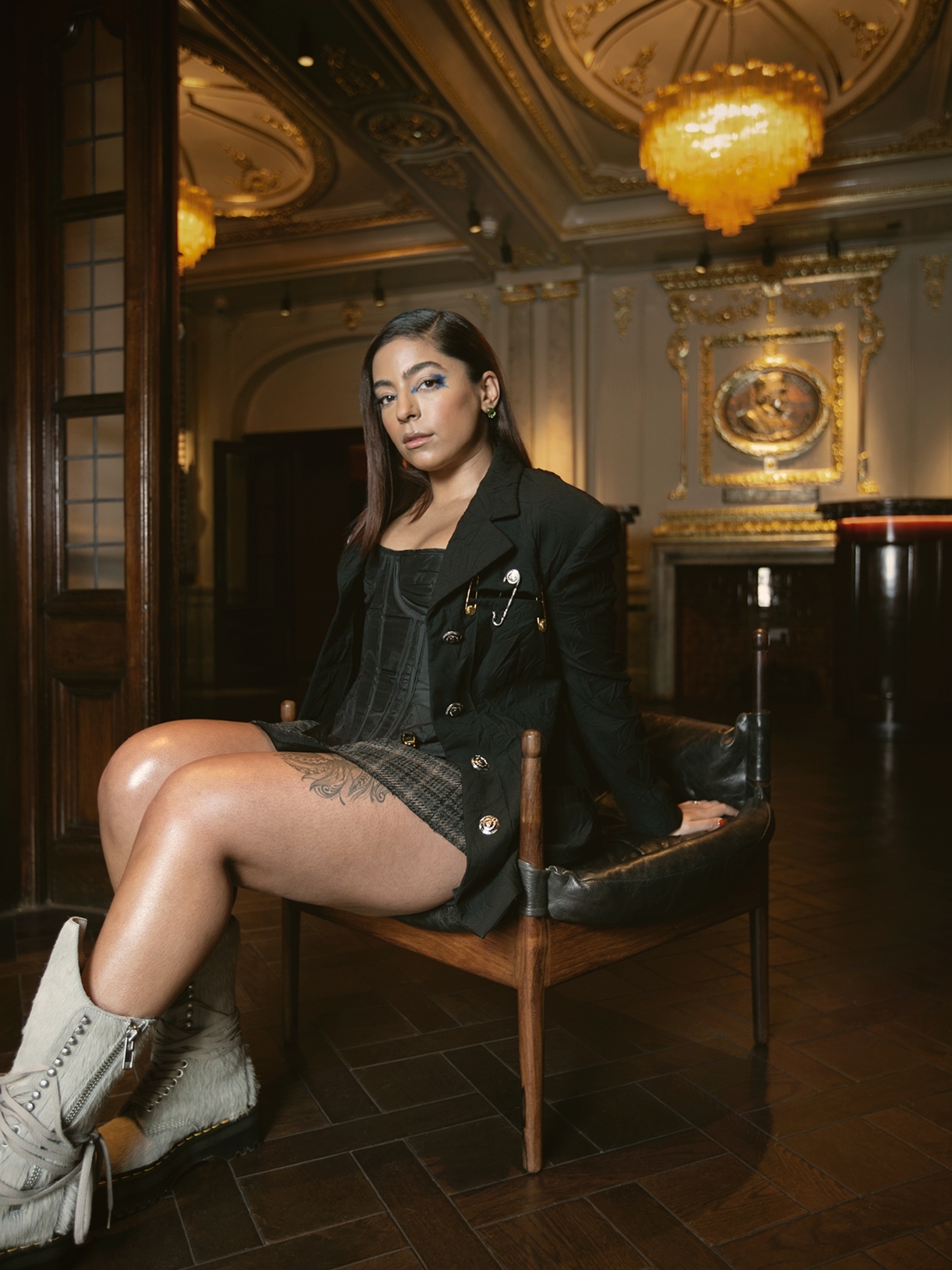
“Our generation is seeing a change in nightclubs where everything is becoming bigger and ‘better’,” she says. “We want our basements back, because they cater to different personalities that want to develop in different ways, listening to different sounds, being part of different subcultures. I like both sides of the spectrum: I like the mega clubs and I like the dirty basements that are restaurants during the day. But what I’m doing now is not going to make sense to you unless I get to show you what nightclubs were like for us. In order for you to understand me on the decks, I need to show you how we did it.”
This is the Jyoty blueprint: Championing new music, paying homage to the greats, connecting the dots between genres, building a community and working a crowd, all while looking damn good.

Being a dedicated club rat is only part of what turns you into a globetrotting DJ in the 2020s. Jyoty’s explosion began in 2019 with a now seminal Boiler Room and continued across lockdown as she made the most of the world being trapped online by sharing her insatiable love of music and infectious personality across every platform – if you were scrolling or tuning in, she was there! Going viral and picking up gigs in different area codes has fast become a rite of passage in the video content era but racking up 5 million plays off the back of one DJ set is, in Jyoty’s case, the result of years of study, graft and vision. And the way she’s handling the spotlight – flipping fame into selling thousands of tickets on her name alone, becoming the go-to DJ for high fashion and sportswear brands alike, advising the world’s super producers on which rising talent they should work with, owning social media – has been forged across a diverse career path that, at age 32, DJing is really only one part of. Watch and learn.
Jyoty grew up in the west side of Amsterdam. The daughter of Punjabi Indian parents, both her hustle and her love of music started age 11, when she began waiting tables and scoring tips at her dad’s restaurant and getting screamed at by her mother for running up the phone bill after calling MTV to request Aaliyah’s ‘Rock The Boat’ before school. “I was in Ancient Latin and Greek classes because I thought I wanted to be a doctor,” Jyoty remembers. “I would fail a lot of the weekly pop quizzes and one of my classmates said, ‘You always know every lyric to every rap song, but you can't remember the Greek alphabet?’ And that's when it hit me.”
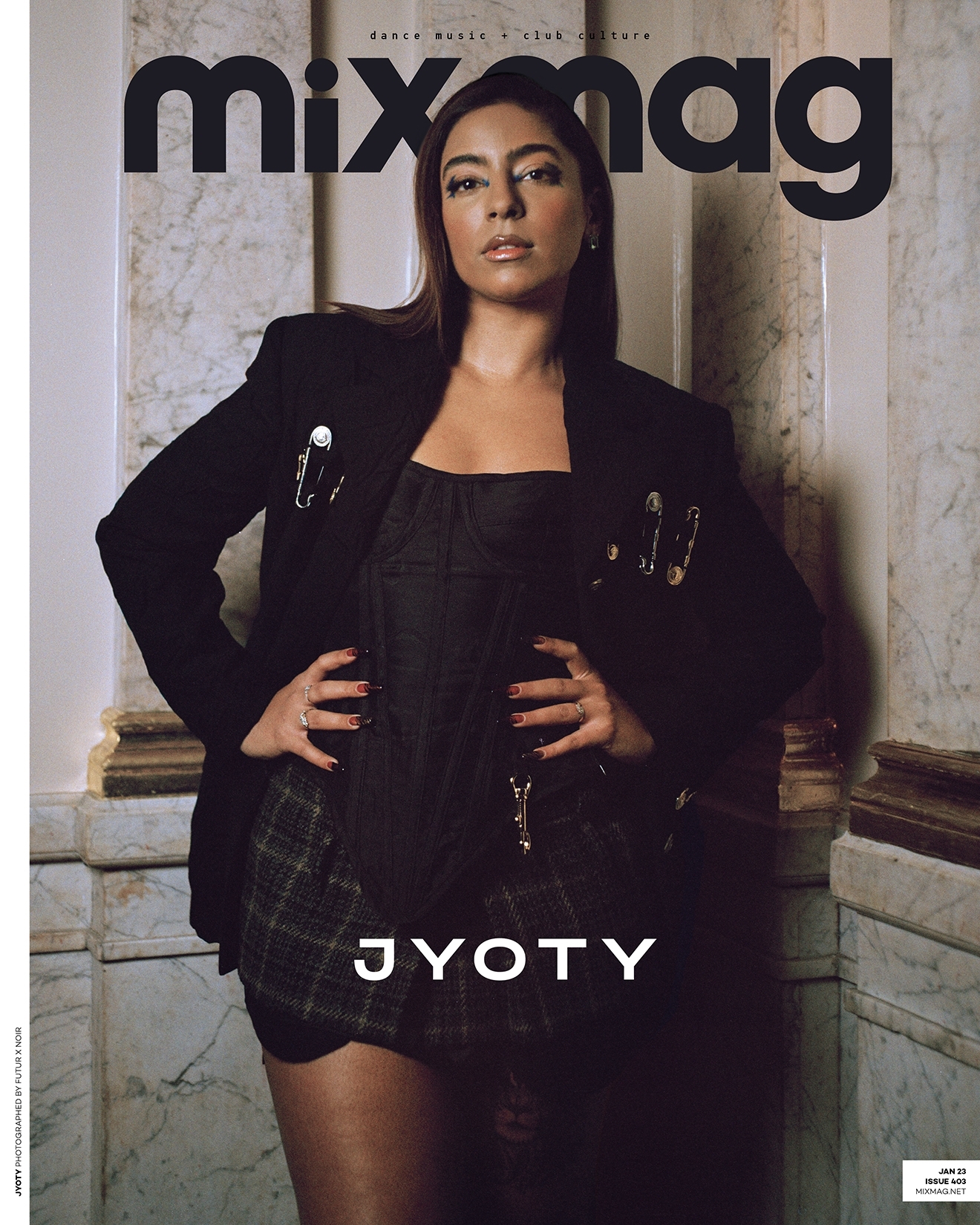
The walls of her bedroom were covered in posters depicting ‘90s pop, rap and R&B stars and she found solace in her Walkman. “I was a really emotional child and music really helped me channel my emotions, and I think that's why I held on to it so much. I would walk around with headphones on, listening to the same cassette tape over and over and over again. And then I was really social when it was time to be social. And anytime there were breaks, I would have headphones back on and be really introverted. That carried on throughout high school.” She started sneaking out to shows at age 14, going to see Erykah Badu and Jill Scott on her ones like a neo soul ninja. And then the clubbing began. While she had the street smarts to sneak into venues underage, getting home had to be a meticulously-planned mission. “Indian people – I didn't know the fuck who they were! – would see me out in the streets of Amsterdam and snitch to my dad. And so it would always get back to my parents that I was clearly not just sleeping over at my friends to do homework, because ‘why is your uncle seeing you strolling around at 4:AM?’ Or you'd get in a cab and the cabbie is a Brown man. Fuck! So basically the community would rat me out,” Jyoty says. “Thankfully my mom got to a point where she also matured in her parenthood, realising ‘I can't stop her, because she'll figure out a way to sneak out.’ It was more of a panic agreement from her end, but it worked out. Now I pay her bills!”
Jyoty started working at a sneaker store later on in her teens, unlocking a love affair with sneaker culture, streetwear and fashion. It also helped that those cultures go hand-in-hand with music — she learned all about the genre and aesthetic tribes and how different items of clothing would relate to personal taste (“If you wore Blazers, you were a skater; Air Max, you were a gabber; five-panel cap, junglist!”) She was the only woman working in the store, surrounded by older, hipper men, all of whom she’s still friends with today. They’d take her to rap shows and she’d get schooled at exclusive events, like the time Lil Wayne rolled through ‘Dam and performed ‘A Milli’ before it was released anywhere as a single. “That's when I knew like, oh, I need to forever be in this environment,” she says. “I never thought it was going to be my job. But I knew that whatever was going on between me and music at that time, I had to be in it. I didn't want to be a spectator. I needed to be with all of these people who are just as obsessed as me.”
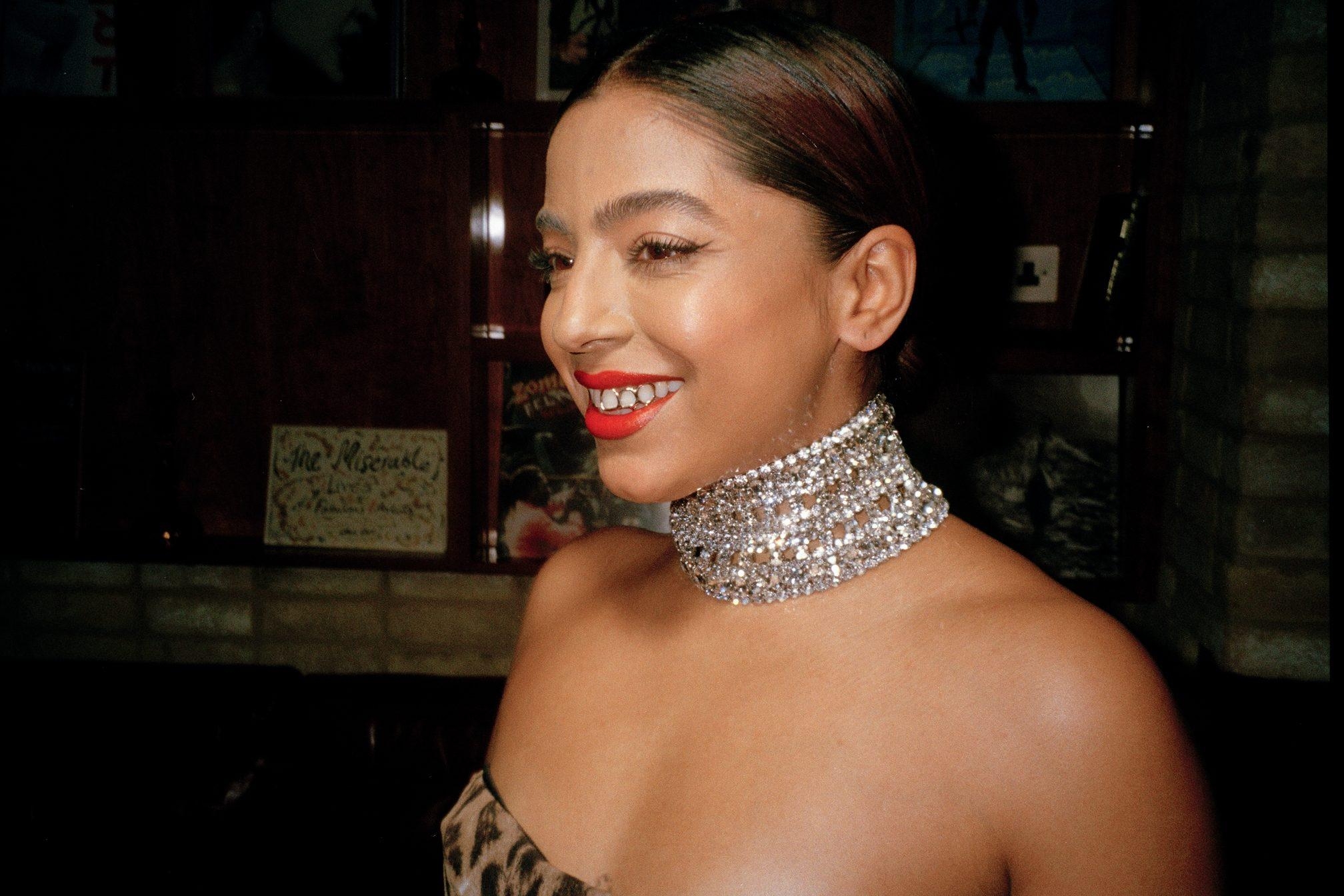
She studied political science and philosophy at university and was taught by professors who also lectured at Harvard, an experience that was fundamental in honing her business skills. She also began working at a casting agency which would scout for major Dutch TV shows, managing high-end talent budgets alongside smashing her exams. When she was 22 she made the move to London, a city close enough to the Netherlands that her family could keep one eye on her and which, handily, also had the best music scene in the world at the time. She knew her way around town, having (obviously!) visited as an underage raver to go to Twice As Nice, and enrolled in a masters in World History And Cultures at King’s College, continuing her party education at night by hitting Night Slugs (“they get all my flowers!”), Eglo Records (“they showed me what community looks like… and they’re playing R&B at 4:AM!”), the legendary Cable club and even the infamous Jaded afterparties (“as deep as it gets on a Sunday morning.”)
She got work as the door person of The Nest, a grotty basement club in Dalston that allowed her to see every DJ before they blew up and meet the kings and queens and the waifs and strays of London nightlife as they shuffled inside. Once she graduated from her MA, she realised she couldn’t do door work forever and started volunteering with her local Labour MP, which led to a job at Portcullis House [where MPs have their offices]. She then became an executive assistant at an IT company, brushing shoulders with Directors of Google, and then got involved with a start-up founded by a multimillionaire, cutting her teeth in marketing, influencers and social media, as well as international travel, when she found herself giving presentations on a yacht in Monaco. Her last office job before becoming a full-time DJ was in brand partnerships at Mixcloud. With that CV, she was ready when fame came at her like a heavyweight asking for 12 rounds in the ring. More than ready.
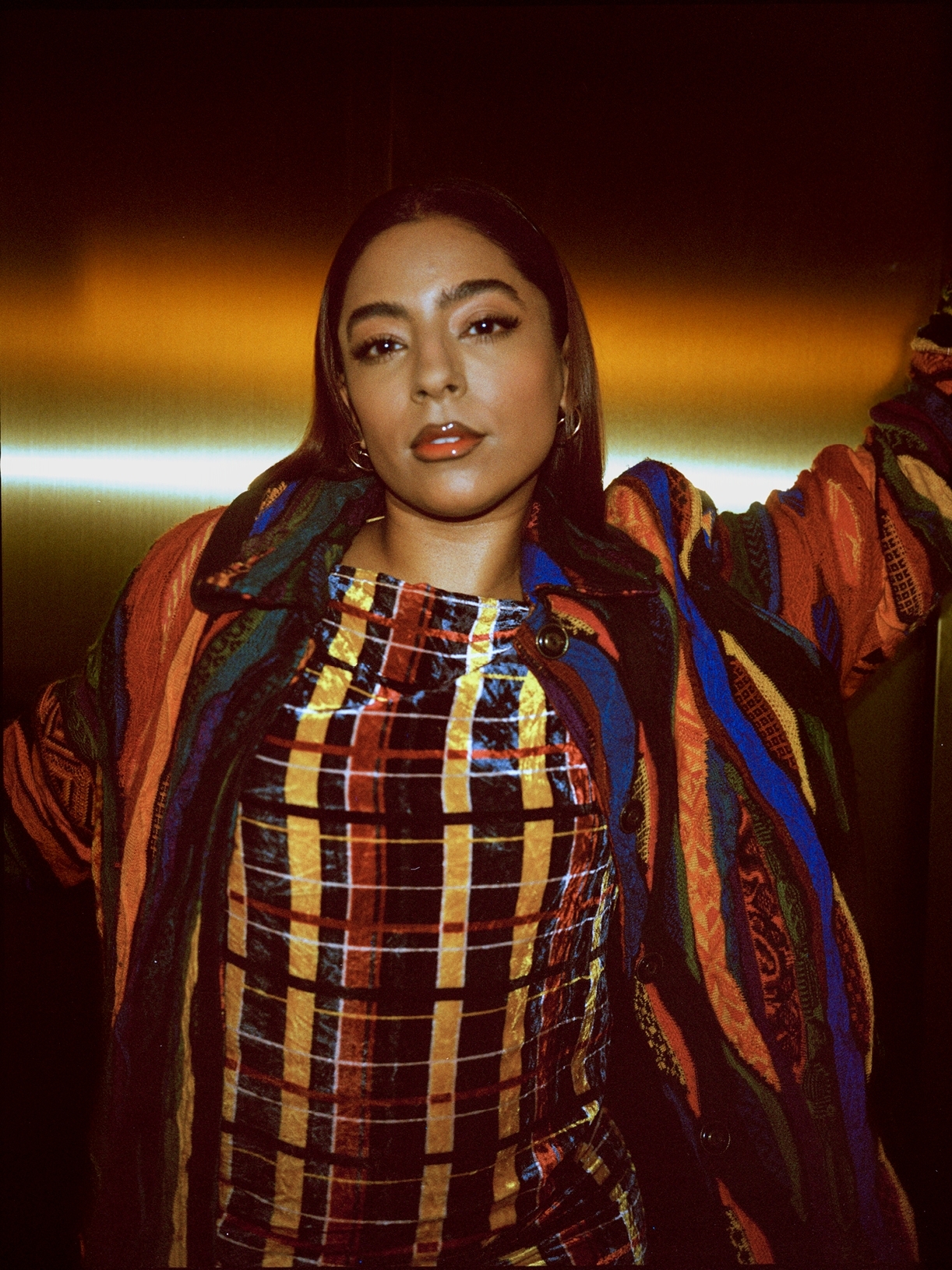
Her DJ origin story begins at Rinse FM, where she hosted a playlist show during which she’d sneak in her own selections. Her stubborn desire to curate her own show led station founder Geeneus to give her a shot and she’s been holding down a Thursday afternoon slot every week for the last seven years. She rarely mixes on the show, preferring to host in the traditional sense, presenting a mixtape of rap, R&B, neo soul, house, garage, grime and any other genre that’ll make you dance or screwface or both. There’s also a keen focus on guests and new talent, with a roll call that’s always one step ahead. “I had Cardi B before ‘Bodak Yellow’, Masego six years ago, Brent Faiyaz and Sango before their GRAMMY nominations, The Last Poets before Jamal passed away, Black Milk, The Pharcyde, Princess Nokia just after she changed her name from Wavy Spice. I would get there so early,” she says. “I was Greentea Peng and Benji Flo's first radio interviews. I always look back at it and I think, I'm so proud of this SoundCloud archive that is just there to get into whenever you want to. I’m not saying I know what’s hot because I'm trying to figure out what's hot. I'm just selfish. I just want you to hear what I'm listening to.” She also uses her show to foster her own community of diehard fans and listeners, taking them on different journeys every week and revealing different sides of her personality. It’s also where she gets people warmed up for the new music she’ll be incorporating into her DJ sets and the artists she’ll be booking on her tours and at her Homegrown club nights. “If I'm coming to a city where I tend to sell-out quickly, people who listen to the show, they'll know a month before anyone else. It's just a special relationship I have,” she says. “There's a lot of people that listen to my radio show who don't use social media, like older people from Chicago, they email me once a month, like four or five long paragraphs. I've had emails from jail, from inmates listening to the radio show. It’s a different way of connecting with people who don't exist online, and it's beautiful, and I really don't ever want to give that up. Even if it means doing it unpaid for the rest of my life.”

Her Rinse shows soon built enough of a following that people started to reach out about her DJing in clubs. She resisted as she didn’t yet know how to beatmatch, but a booking from Jamz Supernova in 2017 pushed her into playing live for the first time. She put in the practice hours, pulled it off and hasn’t looked back. When she plays, she channels the spirit of her radio shows: “I just play what I want to play and there's no limits, there's no rules. And sometimes it's very quick mixing or sometimes it’s running a track for four minutes. You know, going from 130 BPM to 85 BPM, it's just that freedom of telling a story.”
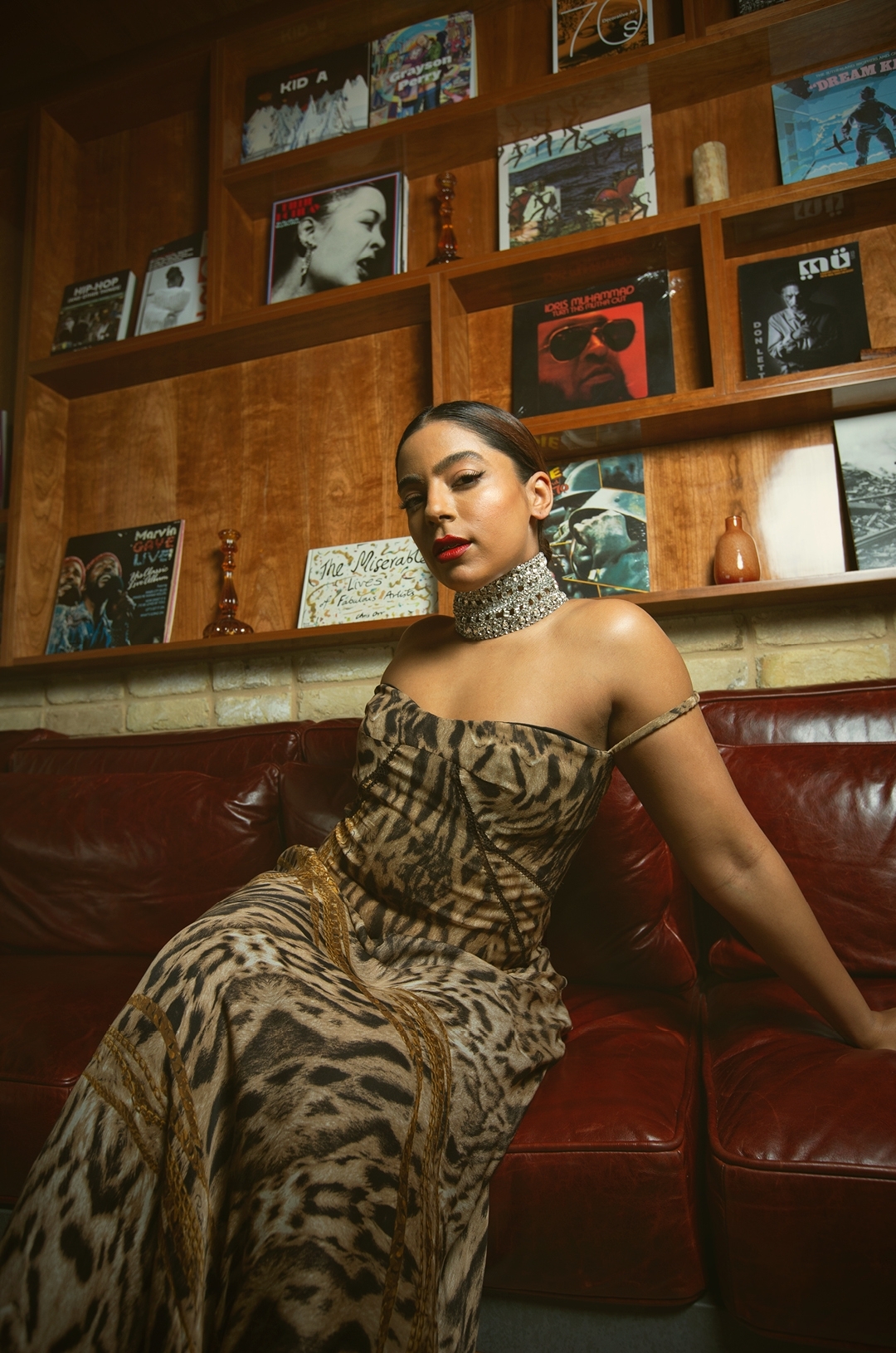
In 2019 Jyoty played a Boiler Room – a full circle moment given she used to do the door for the brand’s parties – and it did bits on YouTube, thanks to her vibrant, party-minded selection and girls-to-the-front energy. But what catapulted her onto screens around the world was a TikTok clip taken from the set that went fully viral coupled with a decision during lockdown to utilise social media for live streams, DJ mixes and her own personal brand of always-on marketing — which is a blend of humour, music chat, unsponsored make-up reviews, incisive political thoughts, dating tips and holding her haters and toxic men to full account (hearing that she excelled at debate club at school comes as no surprise – if you come at the queen, you better not miss!). Jyoty became that best mate who dishes out great recommendations and solid advice, all wrapped up in her playful humour, across umpteen Stories and TikToks. She had us captivated.
So, the million dollar question. Do you need to be sick at social to become a major DJ in the ‘20s? “No. But I will say I am part of the generation who believes that if things are accessible to you, and you do not use them, I cannot help you. Right? I hear a lot of people talking about how everything works through social media but they don't like posting their face. Who said you need to post your face? I just think there's all these tools.” All of her platforms are buzzing with different types of content (or, perhaps less cynically, music entertainment), from tour vlogs and industry advice on YouTube to her back catalogue of mixes on SoundCloud and Mixcloud to specific short-form videos on TikTok. She mentions Josey Rebelle and Helena Hauff as successful DJs who don’t use social, but she personally loves it as a form of communication. After a busy gig, she’ll reply to up to 1000 DMs in a day.
“I post a lot, but I don't scroll a lot,” she says. Which is sage advice and maybe why she’s still sane. “It's a fun way of me getting thoughts out of my head. It's like journaling, but I just journal on Insta Story. I'm self-absorbed in the sense that I think my life is such a fucking fun roller coaster. And I want you to see it. I want you to see how it keeps getting better. And for those people who knew me from when I was doing Insta Stories in the cold outside the club [when she was running the door], I think they get it.”
“I can either fight it, or I can go along with it and give my fans what I am comfortable with giving,” she says. “That's very succinct – and wise. I like it!” There’s a media studies dissertation waiting to be written on how she seamlessly utilises the internet and keeps it real, no mean feat in today’s hypercritical (DJ) culture. The following she’s built over the last few years is dedicated and loyal, selling out shows all over Europe, trooping out to festival stages and swelling her social pages with engagement. But there’s a restrictive side to hype, one that pigeonholes an artist and sets expectations. It has the potential to be crushing. It’s made Jyoty more determined than ever to set out her blueprint for club culture and to hell with anyone who hasn’t got the patience beyond a 30-second clip to understand or go with it. This is where Homegrown comes in, the party that she curates, promotes and plays at. Her status means it sells out on her name alone, but instead of resting her laurels, she uses the line-up and the space to welcome people into her ideal of raving.
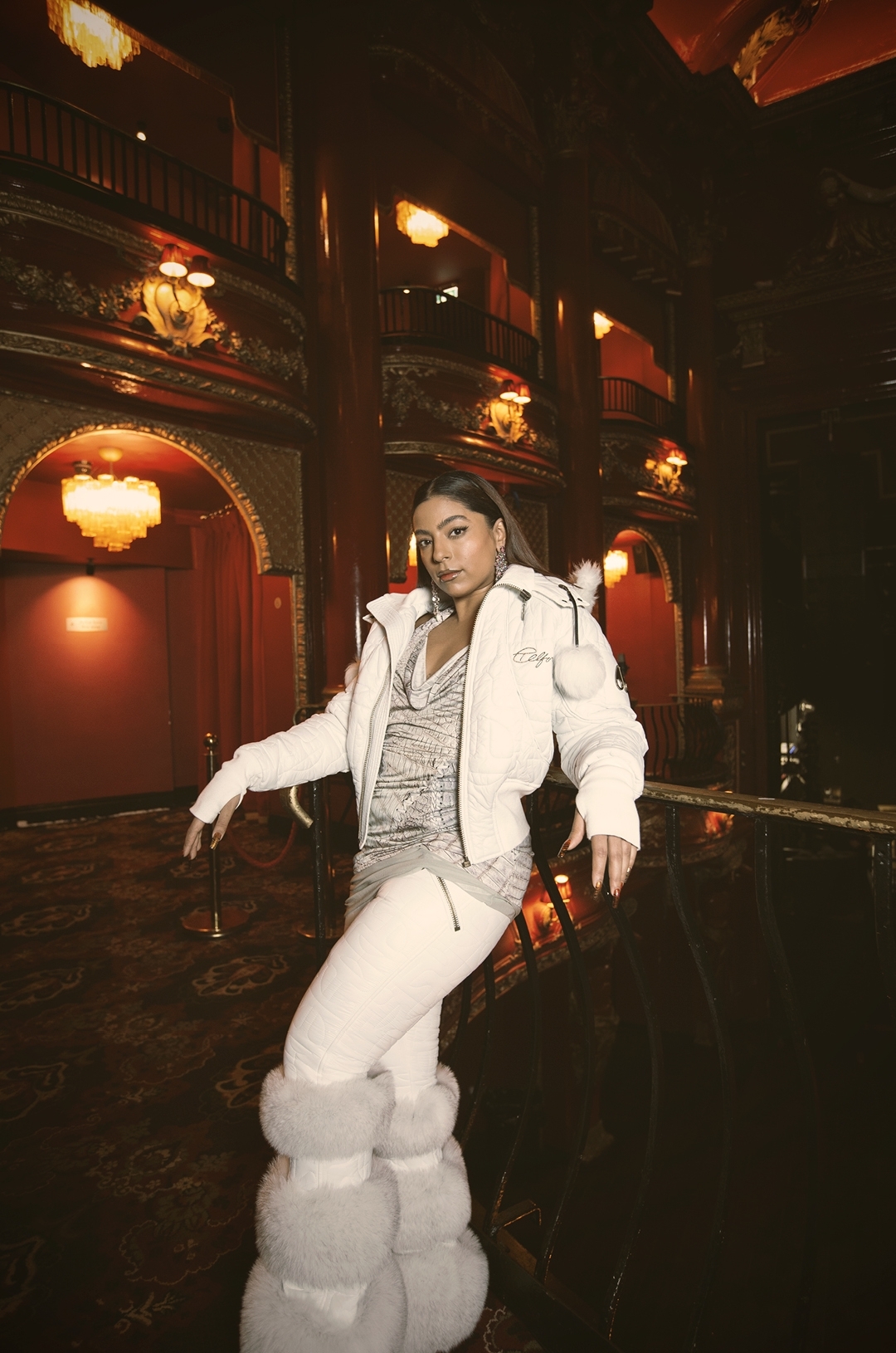
“In one breath, I'd say it’s just another party. People start parties and love saying that it's like something. And unless it's, for example, Pxssy Palace, then it’s not. That was something else. London didn't have that. That was different,” Jyoty says. “So I always start with saying it's just another party, but it's my ideal party. And it's very selfish.” She blends legends of the scenes she grew up in (Lil Silva, Scratcha DVA, Roska, Chuckie) with brand new talent (Selectya Glossy, Kinnari, Claudine Mayari) and artists pushing to the forefront of their respective sounds (Sam Gellaitry, FS Green). It’s a global outlook with a penchant for new, interesting and roof-raising dance music. “That's how I see Homegrown. I'm like, this whole line-up, these people are going to take control of you tonight. And we're going to try to make you stay as long as possible,” she says. “Homegrown is the place where I just really want to shove music down people's throats under the disguise that they think they're coming to see me. And it's like, surprise! Actually, I'm going to really make you fall in love with these other DJs and you're going to stalk them from the next day, which my fans have done, which is great. Fucking amazing.”

At the Homegrown takeover of London’s iconic KOKO in December, we walk in to the sound of Brazil’s Deekapz playing a baile funk remix of ABBA before dropping an onslaught of edits underpinned by the genre’s booty-slapping rhythm. Jyoty then plays for two hours, bookending her set with house, garage, funky, grime and US rap, with a lighter-raising, waist-winding section of R&B, dancehall and Afrobeats slap bang in the middle. At peak time, in a huge club packed to the rafters. Then De Schuurman, a talisman of the new-school of Dutch bubbling, plays for a blistering, up-tempo hour. It’s exhilarating. And an interesting thing happens in the crowd: as De Schuurman plays, half the 1400-strong dancefloor leaves, having got their dose of Jyoty. The other half remain, raving hard until lights up, 700 sweaty bodies dedicating themselves to Homegrown ‘til the bitter end. It’s clear these people reflect Jyoty’s pure love of music. She’s opening minds and taking the real ones with her.
A few complainers pop up to have words with her about the music on the night but she’s unequivocal about her vision. “I'm sorry if you are telling me that you're my biggest fan and you love my Boiler Room, then you're not a biggest fan, because that means you haven't listened to 150 radio shows since then. About 100 live streams since then. The SonarMix, the Resident Advisor mix. Like what? No, no, hold on. It's not my fault that you're disappointed. It's your own fault.”
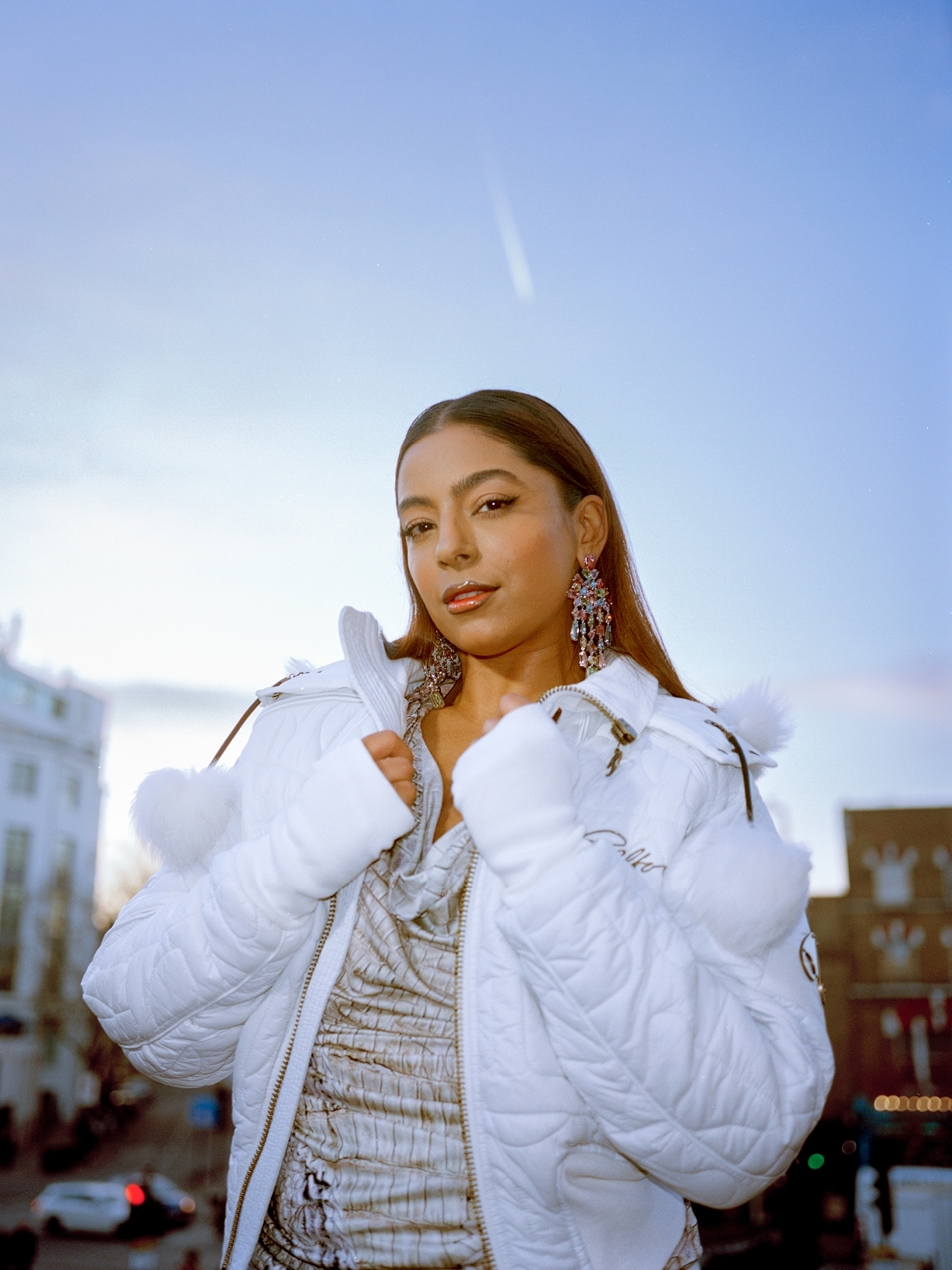
Jyoty remains the Walkman-rocking, music obsessed kid at heart. The girl with posters all over her bedroom wall who saw a whole universe in music. She’s inviting you to come on that journey with her. “I had a moment where I grabbed the microphone at the start of my set at KOKO where I said, ‘I sold-out KOKO, by the way!’ And that's when everyone started screaming and shouting. That's my form of politics. Do you understand I'm not that dancehall girl that you keep saying I am – this is bigger than that. This is me saying you don't have to play according to these rules.”
“Your audience is your currency and I bring that no matter what. It doesn't matter what fucking tune I bring,” she continues. “What you're seeing is every club's wet dream. Every club wants that audience. That's currency. But I protect my currency. I don't use them as currency. I just keep them close. Because I know that they're getting me to where I need to be. And that's also why I keep saying that, without you guys, I wouldn't be here.”
She enters 2023 having forged her own pathway through the music industry. She’ll continue taking her DJ sets and Homegrown parties around the world, supplying the music for events thrown by high fashion houses Prada and Jacquemus, is planning to travel the globe as a music supervisor on a new album by a former Mixmag cover superstar, and is open to new briefs as she goes — a true multi-hyphenate from the underground (she even narrowly missed out on a role in hit Netflix show Wednesday). “I've never understood why you’d tell someone that they shouldn't try more things,” she says. “If you have one life and you're going to waste it on doing one thing because other people are telling you to, that's weird to me.”
Seb Wheeler is Head of Audience at Universal Music Recordings and an occasional music journalist. Sign up to his newsletter Waste Mail here
Special thanks to KOKO for letting us use their beautiful spaces The House of KOKO, KOKO, KOKO Electronic
Fashion credits: Special thanks to Karla Otto, Agency Eleven, Studded Petals, Archive Six, Present Agency


